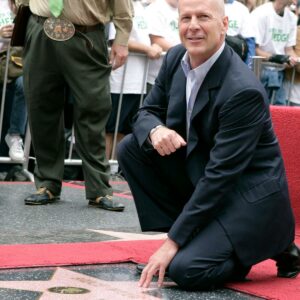Brad Pitt, a name synonymous with Hollywood stardom, has consistently proven that his influence extends far beyond his roles on screen. Over the years, Pitt has emerged as a vocal advocate for change within the film industry, particularly when it comes to the issue of diversity. In a landscape often criticized for its lack of representation, Pitt’s ongoing dialogue about the importance of diversity offers a refreshing perspective on how the industry can evolve for the better. Through both his work and his words, Pitt has become a champion for inclusivity, reminding us that diversity is not a trend but a fundamental aspect of authentic storytelling.
Brad Pitt’s Stand on Diversity
Brad Pitt’s commitment to diversity in film is not a recent development. Throughout his career, Pitt has recognized that diversity in storytelling enriches the cinematic experience for everyone. He has emphasized that when filmmakers embrace diverse voices and perspectives, the result is not only more nuanced and authentic storytelling but also a film industry that better reflects the world we live in. For Pitt, diversity is about more than simply checking off boxes or meeting quotas. It is about genuinely representing the variety of human experiences and making sure that everyone has the opportunity to see themselves on screen.
Pitt’s advocacy for diversity was particularly evident during the promotional tour for 12 Years a Slave, a film that he not only starred in but also produced. The film, directed by Steve McQueen, tells the harrowing true story of Solomon Northup, a free African American man who was kidnapped and sold into slavery in the 1840s. 12 Years a Slave was not just an important film for its historical significance; it was also a powerful example of how Hollywood can amplify underrepresented voices and stories. The film went on to win numerous awards, including the Academy Award for Best Picture in 2014, solidifying its place in cinematic history. For Pitt, the success of 12 Years a Slave was a testament to the power of diverse storytelling and its ability to move audiences and provoke meaningful conversations.
Why Diversity Matters
In Brad Pitt’s view, diversity in film is essential for a number of reasons. Perhaps most importantly, it allows underrepresented communities to see themselves on screen. When people see characters who look like them, share their experiences, or come from similar backgrounds, it fosters a sense of validation and belonging. This is particularly crucial for marginalized groups who have historically been excluded from mainstream media. By embracing diversity, the film industry can become a more inclusive space where everyone has the chance to see their stories reflected in the art form.
Beyond representation, diversity in film also opens the door to new narratives that challenge traditional storytelling conventions. For decades, Hollywood has been dominated by stories centered on a narrow range of experiences, often focused on white, male protagonists. However, when filmmakers incorporate diverse voices, the scope of storytelling expands to include a broader range of human experiences. This not only enriches the film industry but also provides audiences with fresh perspectives and stories that they may not have encountered otherwise.
Moreover, Pitt has acknowledged that diverse films have the power to foster empathy and understanding among audiences. By showcasing different cultures, experiences, and viewpoints, films can break down barriers and build connections between people who might otherwise never cross paths. In a world that is increasingly divided, the ability of film to promote empathy and bridge cultural divides is more important than ever.
Pitt’s Role in Promoting Diversity
As a producer, Brad Pitt has played a significant role in promoting diversity in Hollywood. Through his production company, Plan B Entertainment, Pitt has consistently sought out projects that elevate diverse voices and stories. Plan B has been behind some of the most critically acclaimed films that center on diverse characters and themes, helping to shift the narrative in Hollywood toward greater inclusivity.
One of the most notable examples of this is Moonlight, which won the Academy Award for Best Picture in 2017. Directed by Barry Jenkins, Moonlight tells the story of a young black man grappling with his identity and sexuality while growing up in a rough neighborhood in Miami. The film’s sensitive and nuanced portrayal of a marginalized experience resonated with audiences and critics alike, and its success was a triumph for diverse storytelling in Hollywood. Pitt’s involvement in producing Moonlight demonstrates his commitment to amplifying stories that might have otherwise been overlooked in the industry.
Another example is Selma, directed by Ava DuVernay, which chronicles a pivotal moment in the civil rights movement—the 1965 voting rights marches led by Dr. Martin Luther King Jr. and other activists. Selma not only highlighted an important chapter in American history but also showcased the strength of black leadership and activism. By supporting films like Selma, Pitt has helped to ensure that diverse stories are given the platform they deserve in Hollywood.
In interviews, Pitt has also expressed his belief that diversity shouldn’t be limited to the stories being told on screen but should extend to the people behind the scenes as well. From directors and writers to producers and crew members, Pitt believes that a truly diverse film industry requires inclusion at every level of production. He has advocated for greater opportunities for underrepresented individuals in all aspects of filmmaking, recognizing that diversity behind the camera is just as important as diversity in front of it.
The Impact of Pitt’s Advocacy
Brad Pitt’s outspoken support for diversity in film has had a tangible impact on the industry. By backing projects that might have otherwise been overlooked, he has helped bring important stories to the forefront of Hollywood. His advocacy has not only resulted in the creation of groundbreaking films but has also inspired other prominent figures in the industry to use their influence to promote inclusivity and representation.
Pitt’s work as a producer and advocate for diversity has contributed to a broader cultural shift within Hollywood. In recent years, there has been a growing recognition of the need for greater diversity in the film industry, both in terms of the stories being told and the people who are telling them. While there is still much work to be done, the success of films like 12 Years a Slave, Moonlight, and Selma demonstrates that audiences are hungry for diverse stories and that these stories have the power to resonate on a global scale.
Pitt’s efforts have also helped to challenge the notion that films centered on diverse characters and themes are niche or less commercially viable. The success of the films he has championed has shown that diverse stories can be both critically acclaimed and financially successful. This has opened the door for more filmmakers to take risks and tell stories that might have previously been considered too unconventional or outside the mainstream.
Furthermore, Pitt’s advocacy for diversity has had a ripple effect throughout the industry. By using his platform to speak out on this issue, he has encouraged other actors, producers, and filmmakers to do the same. In a time when the call for diversity and inclusion is louder than ever, Pitt’s efforts serve as a powerful reminder that Hollywood still has a long way to go—but that progress is possible.
Brad Pitt’s Vision for the Future of Hollywood
As Brad Pitt continues to advocate for diversity in Hollywood, his vision for the future of the industry is one of inclusivity, representation, and collaboration. Pitt has often spoken about the need for the film industry to evolve and adapt to the changing cultural landscape. He believes that Hollywood has a responsibility to not only entertain but also to educate and inspire. For Pitt, this means telling stories that reflect the diversity of the world we live in and creating opportunities for underrepresented voices to be heard.
Pitt’s vision for the future of Hollywood is one in which diversity is not seen as an obligation or a box to be checked, but as a fundamental aspect of great storytelling. He believes that when filmmakers embrace diversity, they open the door to new ideas, perspectives, and narratives that can enrich the art form and create a more vibrant and dynamic industry. In Pitt’s eyes, diversity is not just a way to enrich storytelling but a responsibility for an industry that has the power to shape culture and change lives.
In interviews, Pitt has emphasized that the push for diversity is not just about creating opportunities for underrepresented groups but about making the film industry as a whole better and more innovative. He believes that when filmmakers and studios prioritize diversity, they create a space for new voices and ideas to flourish, ultimately leading to better and more impactful films. For Pitt, the future of Hollywood is one in which diversity is celebrated and embraced as a key element of the creative process.
Hollywood’s Response to Pitt’s Advocacy
Brad Pitt’s advocacy for diversity has not gone unnoticed by the broader film industry. In recent years, there has been a growing movement within Hollywood to address issues of representation and inclusivity, and Pitt’s efforts have played a significant role in shaping this conversation. Many in the industry have praised Pitt for using his platform to speak out on these important issues and for backing films that highlight diverse voices and stories.
One of the ways in which Hollywood has responded to the call for diversity is through initiatives aimed at increasing representation both on and off screen. Studios and production companies have begun to implement diversity and inclusion programs, and there has been a concerted effort to hire more women, people of color, and individuals from other underrepresented groups in key roles within the industry. While there is still much work to be done, these initiatives represent a step in the right direction toward creating a more inclusive and representative film industry.
In addition to institutional changes, there has also been a cultural shift within Hollywood when it comes to the types of stories being told. Filmmakers and studios are increasingly recognizing the value of diverse storytelling and are investing in projects that center on underrepresented voices. This has led to the creation of a broader range of films that explore a wider array of experiences, from stories about marginalized communities to narratives that challenge traditional gender roles and stereotypes.
However, despite these positive developments, there are still significant challenges that need to be addressed. Hollywood has a long history of exclusion and underrepresentation, and reversing these trends will require sustained effort and commitment from everyone in the industry. While progress has been made, there is still a need for greater accountability and transparency when it comes to issues of diversity and inclusion.
The Ongoing Fight for Diversity in Hollywood
As Brad Pitt continues to advocate for diversity in Hollywood, it is clear that the fight for inclusivity is far from over. While there have been significant strides in recent years, there is still much work to be done to ensure that the film industry truly reflects the diversity of the world we live in. From increasing representation on screen to creating more opportunities for underrepresented voices behind the scenes, the push for diversity in Hollywood requires ongoing effort and vigilance.
One of the key challenges that the industry faces is overcoming the systemic barriers that have historically excluded marginalized groups from opportunities in film. This includes addressing issues such as the lack of access to resources and networks, as well as the persistent biases and stereotypes that continue to shape casting and hiring decisions. To create a truly inclusive industry, Hollywood must confront these systemic issues head-on and work to dismantle the structures that have perpetuated inequality.
In addition to addressing systemic barriers, there is also a need for greater accountability within the industry when it comes to diversity and inclusion. This means holding studios, production companies, and individuals accountable for their commitments to diversity and ensuring that progress is being made. It also means creating a culture within the industry where diversity is not just seen as a goal but as a core value that informs every aspect of the filmmaking process.
For Brad Pitt, the fight for diversity in Hollywood is not just about representation—it is about creating a film industry that is more innovative, dynamic, and reflective of the world we live in. Pitt’s advocacy serves as a powerful reminder that diversity is not just an ideal but a necessity for creating meaningful and impactful cinema. Through his work both on and off the screen, Pitt continues to push for a film industry that embraces the richness and complexity of the human experience.
Conclusion: Brad Pitt’s Legacy as a Champion of Diversity
Brad Pitt’s commitment to diversity in film is clear: it is not just an ideal but an essential element for creating meaningful and impactful cinema. As one of Hollywood’s most iconic figures, Pitt has used his platform to advocate for positive change within the industry, emphasizing the importance of diverse storytelling and inclusion at every level of production.
Through his work as a producer and advocate for diversity, Pitt has helped to bring important stories to the forefront of Hollywood and has inspired others to do the same. His efforts have contributed to a broader cultural shift within the industry toward greater inclusivity and representation, and his vision for the future of Hollywood is one in which diversity is celebrated as a key element of great storytelling.
As Brad Pitt continues to champion projects that highlight diverse voices and stories, he sets an example for how Hollywood can and should evolve. In his eyes, embracing diversity is not just a way to enrich storytelling but a responsibility for an industry that has the power to shape culture and change lives. Through his advocacy and leadership, Brad Pitt has become a vital voice in the conversation about diversity in Hollywood, and his legacy as a champion of inclusivity will continue to resonate for years to come.





